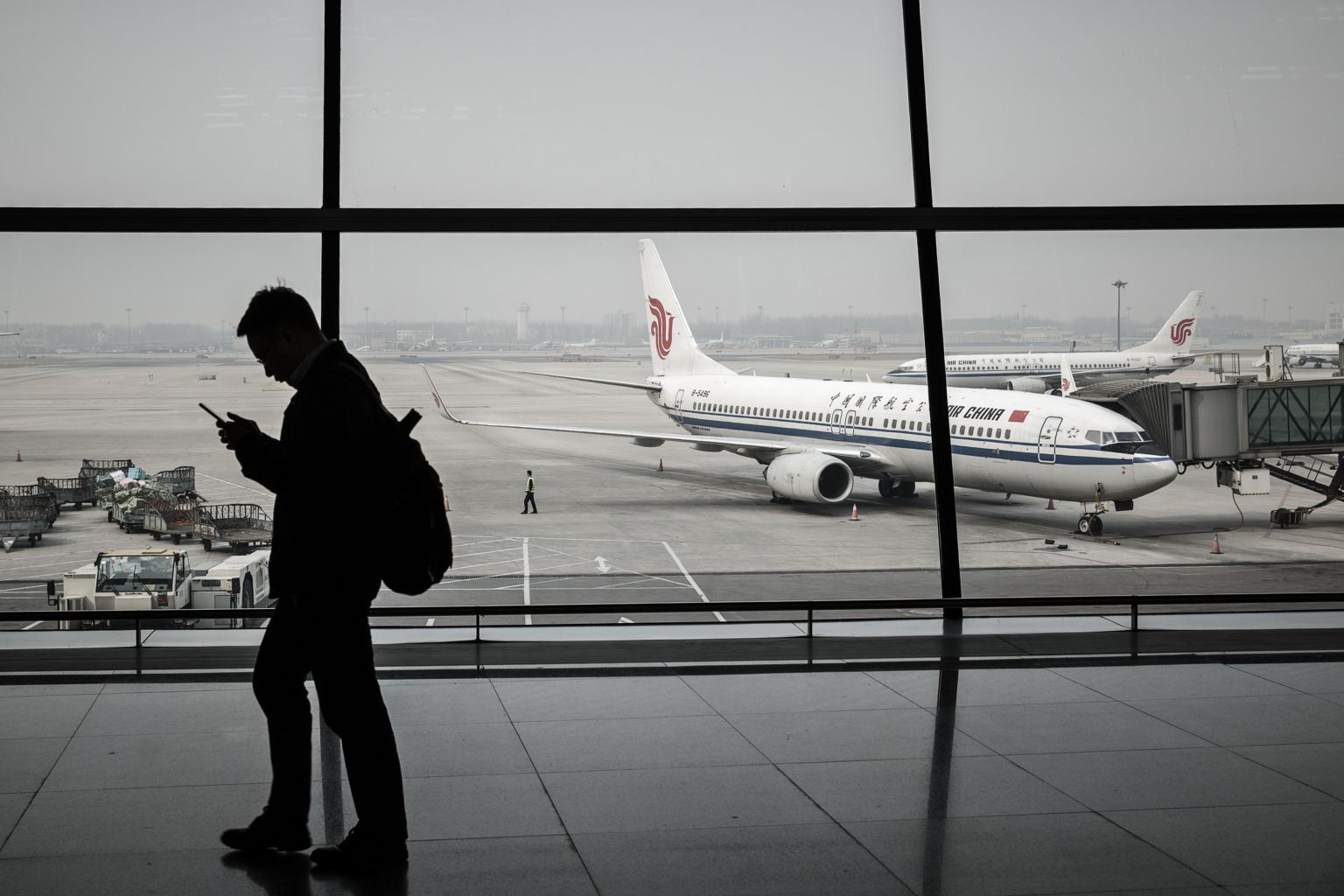China to lift ban on e-gadgets during flights, letting airlines to decide on their use in aircraft
Sign up now: Get insights on Asia's fast-moving developments

A passenger looks at a mobile phone while walking through a terminal building as Air China Ltd. aircraft stand on the tarmac at Beijing Capital International Airport.
PHOTO: BLOOMBERG
Follow topic:
BEIJING (CHINA DAILY/ASIA NEWS NETWORK) - China's civil aviation authority said it will lift its ban on the use of portable electronic devices on aircraft, and let airlines to decide themselves if they want to allow gadgets on their flights.
A newly revised administrative rule that will take effect in October said airline companies will be allowed to make their own assessments of the influence of portable electronic devices.
Airline companies will decide what electronic devices can be used on their planes, and make their own rules.
Since 1999, China's aviation authority has banned the use of any portable electronic devices on the plane. It was thought the wireless signals from those could affect flight safety.
"But now, the government will give airlines the right to decide on their own," said deputy director Zhu Tao of the Department of Flight Standard of the Civil Aviation Administration of China (CAAC).
"I believe we will see various Chinese airline companies allowing passengers to use portable electronic devices on planes in the near future."
The reason for the change is that the anti-interference characteristics of aircraft have been enhanced, civil aviation expert Li Yuan was quoted as saying by the Beijing News.
Many foreign airlines have long allowed passengers to use certain electronic devices during a flight's cruise phase, including mobile phones and laptops.
Some Chinese airlines also allow laptops during the cruise phase, though they prohibit mobile phones.
The CAAC also updated its physical requirements for selecting student pilots for civil aviation. The new rules took effect on Sept 10. Now, a student can qualify with a visual acuity higher than 4.0 on an E Snellen chart, compared with 4.5 in the past.
"This change was designed to recruit more talent that meets both the physical and knowledge demands pilots. It will have a positive and far-reaching effect on the development of the civil aviation industry," CAAC's deputy director Zhu said.

